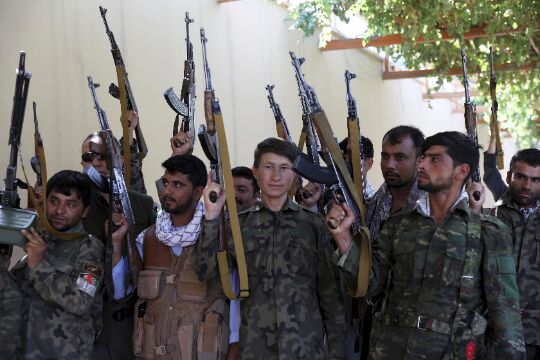Bedevilling scenario
India finds itself in a difficult position as Taliban rule seems inevitable in Afghanistan but it has traditionally favoured the Afghan government; writes Simran Sodhi

The United States' troop withdrawal from Afghanistan has the world watching, but none more so closely or tensely as the neighbourhood. For India, Pakistan, Iran and even Russia, the Afghan internal politics quickly translates into their own regional dynamics and has then the potential of upsetting regional equations. The rise of the Taliban is now a reality and nations around the world will have to deal with it. But that reality might be the hardest for India to swallow.
India, for a very long time, has been harping on the same mantra when it comes to Afghanistan. It has shunned the Taliban as a terrorist organisation and maintained close ties with the Afghan governments of Hamid Karzai and Ashraf Ghani. While the buzz has lately been that India has finally talked to the Taliban, officially there is a denial about any such talks. In the midst of this creeps in the India-Pakistan relationship which is at its lowest today. The mutual mistrust is high and differences remain sharp. This makes each of the two countries suspicious of the other, especially when it comes to a problem as baffling as Afghanistan.
India's external affairs minister S Jaishankar made a quick stop in Iran yesterday en route to Russia and the main agenda on the table was, of course, Afghanistan. This is no coincidence either that this stop happens to come at a time when Iran hosted the Taliban for talks. The Taliban political committee, led by chief negotiator Sher Mohammad Abbas Stanikzai, met Afghan government officials, including former Vice President Younus Qanuni and others from the High Council for National Reconciliation.
While outwardly, India has stuck to the routine statements on Afghanistan and has also dismissed recent reports that it might shut down its consulates there in the wake of the security situation, there can be little denying the fact that the evolving situation in Afghanistan is a headache for India.
BBC reports that the Taliban continue to gain control of more districts in Afghanistan as more than 1,000 Afghan troops fled across the border to Tajikistan. The US seems not to want any more share of this endless and senseless violence. Even as critics ranging from Iran to former Afghan President Hamid Karzai blame the US for failing to do its job in Afghanistan, the harsh truth is that the US is no longer interested in this war. For India, this has been a harsh lesson in diplomatic realism. While the US has strengthened its ties with India, with an eye on China, it has also made it clear that Afghanistan and this regional mess is for India's to deal with, alone. The Taliban and the US entered into direct talks in 2018 and that was a clear signal that the world had begun to accept that without the Taliban at the table, there was no way forward on discussing the future of Afghanistan. India either didn't notice this or chose to continue to live in its own make-believe system.
For India, there are really no easy solutions to the Afghan headache. It is a loath to accept the legitimacy of the Taliban. The close ties that the Taliban share with Pakistan makes it even more difficult for India to extend a hand. But there seems to be little choice here. The way forward will have to see India, keeping its ties with the Afghan government intact, but still talking to the other stakeholders. India can ill afford a hostile power in Afghanistan, given its already tense ties with Pakistan and China. The Taliban have made it clear that September 11 is the deadline by which all western troops must leave the country, even the US troops stationed at the Kabul airport and the US Embassy. The writing on the wall then is clear, Afghanistan enters a new phase of instability and all stakeholders will need to be engaged.
Views expressed are personal



